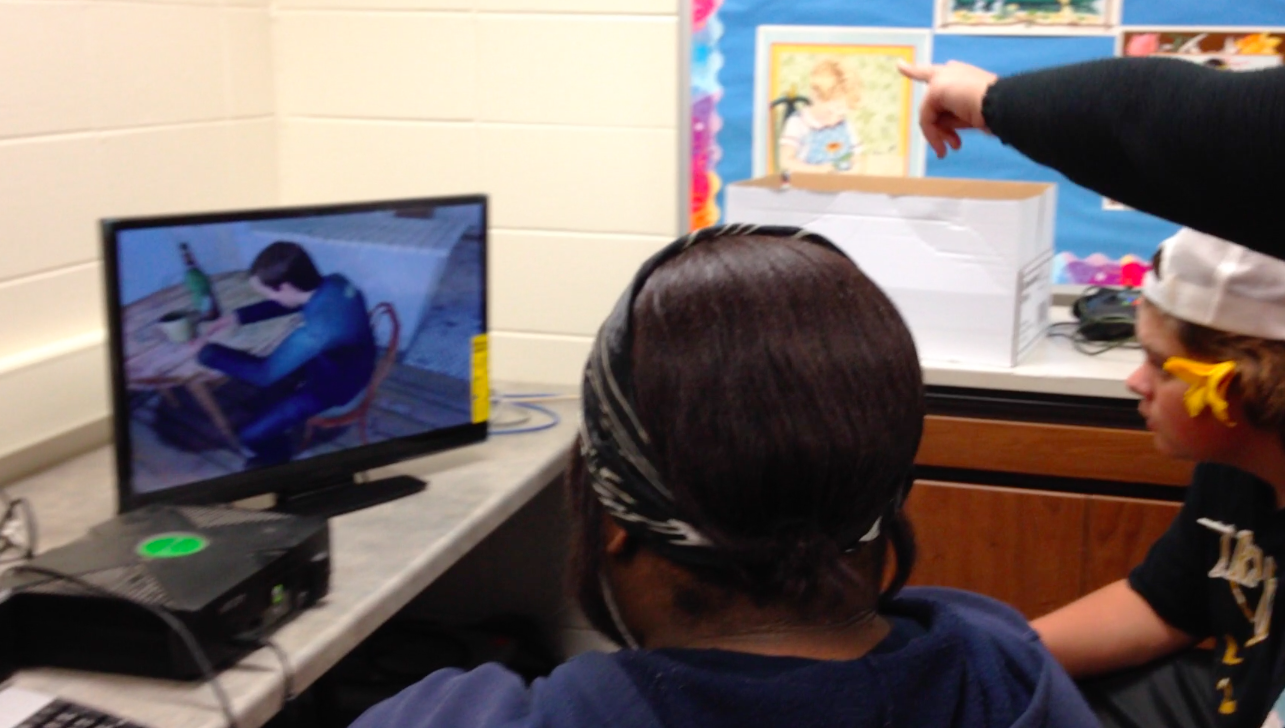There are always those certain comments students make that stick with you days and days after a lesson. Sometimes it is a powerful comment, said only by a youngster who is wise beyond their years. Other times it is a line they perceive as innocuous, an in-the-moment note that may only stick with me. I had one of those recently.
Last week I had the chance to join Mr. Schuh's Science Fiction & Fantasy Literature Summer School class and integrate games as a teaser for dystopian literature. In addition, we used it as a connection to The Matrix, another intriguing piece of dystopian literature. Our goal was to approach the games as a text, but the students had no particular assignment. They were asked to play the games, with a bit of front-loading about the topic in advance.
Our first game was The Republia Times, a great game to give the perspective a person tasked with maintaining a dystopia. The students not only had the chance to play the role of a propaganda artist, but also experienced a great twist ending that captured dystopias to a tee.
Afterward, we played Every Day the Same Dream, a great commentary on the idea of the American dream. I highly recommend giving it a try - the students had a great reflection upon the message of the game and how the gameplay reflected that message. It also perfectly tied in with The Matrix, providing a nice comparative text.
Although it seemed a bit silly at the time, I lugged a 28" LED TV screen and Xbox into the PC lab so we could have a game station with Half Life 2. Like BioShock, Half Life 2 is a brilliant dystopian storyline, especially in the beginning.
We debriefed for a group discussion after playing the games. The students had some great thoughts about the games, and yet one comment still hangs with me. Sure we talked about dystopian elements in each game, brought up other examples of dystopian games, and discussed the messages each had. I brought up what impressions the students' had about the game, and I asked what they admired about these games. Why were they different than other games?
"Because they have a purpose... they have a point."
Ask yourself that question: do we have purpose in everything we do? Do students see purpose in what we do? Can you find games with purpose to add to your curriculum? If you cannot, ask your students. Chances are, they could name you some games with purpose to add to your topics.
Last week I had the chance to join Mr. Schuh's Science Fiction & Fantasy Literature Summer School class and integrate games as a teaser for dystopian literature. In addition, we used it as a connection to The Matrix, another intriguing piece of dystopian literature. Our goal was to approach the games as a text, but the students had no particular assignment. They were asked to play the games, with a bit of front-loading about the topic in advance.
Students playing Half Life 2 for a dystopian unit.
Our first game was The Republia Times, a great game to give the perspective a person tasked with maintaining a dystopia. The students not only had the chance to play the role of a propaganda artist, but also experienced a great twist ending that captured dystopias to a tee.
Afterward, we played Every Day the Same Dream, a great commentary on the idea of the American dream. I highly recommend giving it a try - the students had a great reflection upon the message of the game and how the gameplay reflected that message. It also perfectly tied in with The Matrix, providing a nice comparative text.
Although it seemed a bit silly at the time, I lugged a 28" LED TV screen and Xbox into the PC lab so we could have a game station with Half Life 2. Like BioShock, Half Life 2 is a brilliant dystopian storyline, especially in the beginning.
We debriefed for a group discussion after playing the games. The students had some great thoughts about the games, and yet one comment still hangs with me. Sure we talked about dystopian elements in each game, brought up other examples of dystopian games, and discussed the messages each had. I brought up what impressions the students' had about the game, and I asked what they admired about these games. Why were they different than other games?
"Because they have a purpose... they have a point."
Ask yourself that question: do we have purpose in everything we do? Do students see purpose in what we do? Can you find games with purpose to add to your curriculum? If you cannot, ask your students. Chances are, they could name you some games with purpose to add to your topics.

Comments
Post a Comment